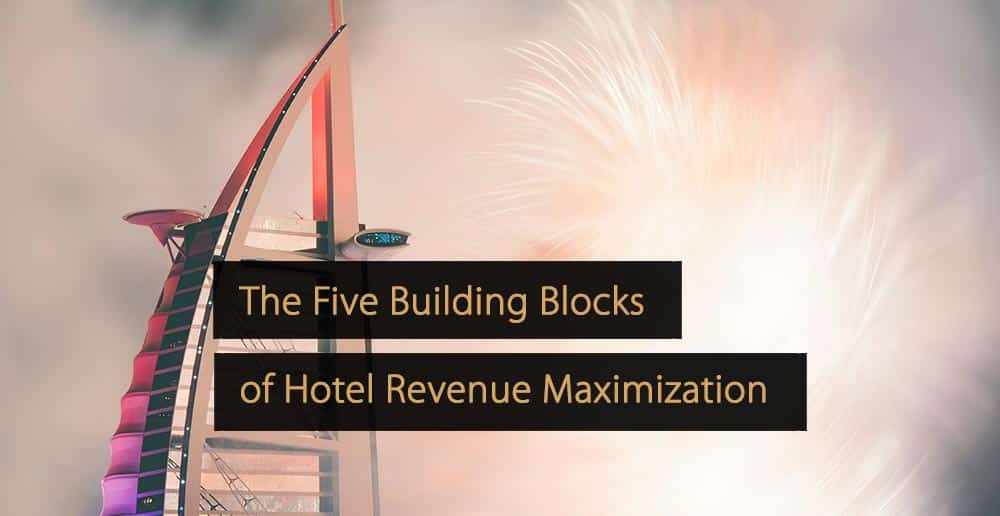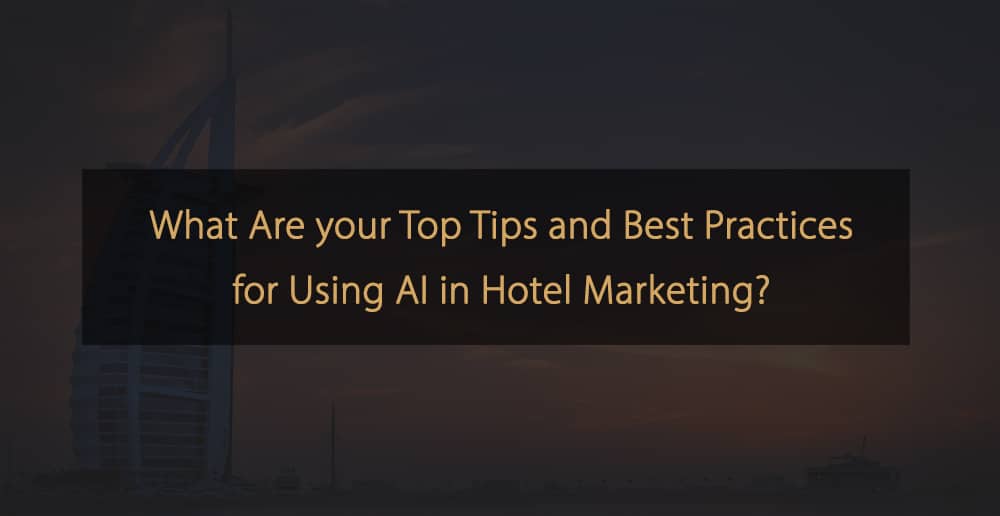Question for Our Revenue Management Expert Panel:
How might the use of ChatGPT and other Large Language Models (LLM) affect the booking process? What impact might they have on revenue management? (Question by Massimiliano Terzulli)
Industry Expert Panel
Our Industry Expert Panel exists out of professionals within the hospitality & travel Industry. They have comprehensive and detailed knowledge, experience in practice or management and are forward-thinking. They are answering questions about the state of the industry. They share their insights on topics like revenue management, marketing, operations, technology and discuss the latest trends.
Our Revenue Management Expert Panel
- Massimiliano Terzulli – Revenue Management Consultant, Franco Grasso Revenue Team
- Oleksii Kapichin – Revenue Management Professional
- Pablo Torres – Director, TEDUKA
- Tanya Hadwick – Group Revenue & Yield Leader, SunSwept Resorts
- Diego Fernández Pérez De Ponga – Director of Revenue Management, Palladium Hotel Group
- Fabian Bartnick – Founder, Infinito
- Heiko Rieder – Vice President Business Development, Hirmer Hospitality and Travel Charme Hotels
- Connor Vanderholm – CEO, Topline
- Krunal Shah – Director of Revenue Management, The Biltmore Mayfair, LXR Hotels & Resorts
- Silvia Cantarella – Revenue Management Consultant, Revenue Acrobats
- Ask Our Panel a Question
- Join Our Expert Panel
“It will be interesting to see the developments of ChatGPT and the repercussions it will have on the tourism sector and how customers will use it for their trips. It will certainly make the booking process much simpler and less fragmented, as the various stages of the booking process (dreaming, searching, booking and sharing) could be unified into a single platform that acts as a hub of many embedded micro-platforms (travel portals, OTAs, brand.com websites, payment platforms, review portals, social networks, etc.).
This could be possible thanks to the ability of ChatGPT, integrated with metasearch engines such as Google, Bing or social networks such as Instagram or Tiktok, to provide inspiration to those who are looking for the ideal destination, helping them book the ideal hotel based on their past purchasing behaviour, perhaps via voice search, and speeding up the payment process through direct integrations with payment gateways.
Speeding up the search and purchase phase could affect the booking window, bringing it forward. This could have implications for revenue management practices.
It is also interesting to see the implications that Chat GPT could have for revenue managers themselves in daily practices, for example how it could integrate with other RM tools to inspire certain sales strategies based on certain prompts that allow the machine to study and analyse a huge amount of data in real-time in a few seconds, allowing the revenue manager to interpret data and make informed decisions (e.g., prompts that allow you to define promotions or offers based on what guests express in their reviews in a particular hotel or destination, or prompts that allow you to analyse and react to any halts in demand for unexpected reasons, e.g., strikes at airports or means of transport, socio-political tensions, etc.).”
“The Open AI recently introduced GPTs – a new feature that allows the creation of custom versions of ChatGPT that can be tailored for specific needs and customised with actions and knowledge. I see a potential for revenue managers to have a helpful virtual AI assistant. Since GPT allows customisation and data upload, the revenue manager can create GPT that works within set parameters and “understands” the hotel’s market, strategy, seasonality, etc. It’s like having an RMS that you can talk to. The problem with RMS systems is the lack of explanation of decisions. It’s all about numbers. Also, customisation is available, but it’s limited. GPT can be a useful additional tool for revenue managers to make pricing decisions, and create and explain strategies.
Privacy is essential because no one wants to share sensitive data with Open AI. According to the Open AI’s press release, “users have the option to opt your entire account out of model training” and “when builders customise their own GPT with actions or knowledge, the builder can choose if user chats with that GPT can be used to improve and train our models”.
Imagine asking your AI assistant, “What is the optimal rate for a Deluxe room this coming Friday?” We are one step closer to this future.”
“LLMs can be used to develop more personalised and engaging booking experiences for guests or to automate customer service tasks, such as answering questions and resolving issues. They can also detect and prevent fraud, and identify and target new markets. AI can also be used to improve the efficiency of hotel reservation systems by automating tasks such as checking availability, calculating rates, processing payments or confirming reservations.
Some real-life examples include:
- Hilton is using AI to develop a personalised booking experience for its guests. AI takes into account the guest’s past booking history, preferences, and other factors to recommend the best room and amenities for the guest.
- Marriott is using AI to forecast demand and optimise its pricing strategies. This has helped Marriott to increase its revenue by millions of dollars.
- Airbnb is using AI to detect and prevent fraud. AI analyses Airbnb listings and user accounts for suspicious activity. This helps to protect both Airbnb hosts and guests.
Additionally, chatbots with AI are increasing the accuracy of their replies. If, in the past, based only on the parameters introduced at the beginning, the chatbots could reply to up to 80% of the questions asked by customers, nowadays with machine learning and AI, that number will eventually get close to 100%. That is leading (as several companies have already incorporated it) to more bookings via the direct channel, thus increasing the ADR and therefore having a direct impact on Revenue.”
“Anything that can assist in analysing guest feedback and identify areas for improvement or new services and functions will have a positive impact.
The ability to engage in conversation around the clock and offer personalised recommendations based on data will elevate the guest experience during the booking process, and therefore hopefully assist in ensuring that the guests are getting offered all that they desire at the booking stage.
From a revenue management perspective, information on trends is always welcome in order to be able to predict demand and look at booking behaviours plus consumer spending habits in order to maximise yields.”
“The use of ChatGPT and other advanced language models looks set to have a big and valuable impact. They should focus on making repetitive tasks automatic or adding more value than what a usual user can give.
A big improvement will be seen in the booking process, where many steps now needing human help can be made automatically. Better strategies for additional sales (upselling) and cross-selling before the customer’s stay are also expected. These technologies might remove language barriers and greatly reduce the need for information contact points, like calling a hotel to check gym hours.
Another big plus is in making reports. With ChatGPT, we can start to move away from manually making basic reports about the hotel’s performance, as these can be put together automatically.
However, I’m not sure if this technology can do better than existing tools in areas like improving forecast quality or complex math calculations. Tools like Business Intelligence (BI) and AI processes have been effectively helping in these areas for some time now. Let’s see how they could improve the RMS technology, for example.”
“LLMs, like all algorithms, will favour what is being used over and over again. So little things will change on that front. Where it becomes tricky is when external LLMs (user-managed) “battle it out” with internal LLMs (hotel-managed). We then venture into the realm of game theory to create win-win situations.
We have used LLMs to make data more insightful and use them to provide checks and balances on the data and other systems, i.e., highlighting outliers and normalities. This sits on the hotel side and helps the revenue manager make better decisions. An example of how not the AI, but the person using AI, can create an impact.”
“LLMs can provide instant responses to customer inquiries, helping users find and book accommodations more efficiently. This can lead to a smoother booking process and increased customer satisfaction. More importantly, the new technologies can analyse user preferences and booking history to offer personalised hotel suggestions, room upgrades, or special offers, potentially increasing the value of each booking, while increasing the conversion rate and saving on media spending. Many booking engines are still not user-friendly enough for modifications, cancellations, and special requests. LLMs can guide the customers through the process and as such relieve reservations staff.
In summary, Chat GPT and other Large Language Models have the potential to significantly increase shares from online bookings, either through direct hotel booking engines or OTAs. Hotels and groups aiming at increasing these shares must always keep their own booking channels up to date with the latest technology possibilities to maintain a better experience as OTAs.
It’s important to implement LLMs thoughtfully, maintaining a balance between automation and human interaction, and addressing privacy concerns. Continuous monitoring and refinement of LLMs in the hotel booking process and revenue management are essential to ensure optimal performance and customer satisfaction.”
“Guests can quickly receive more thorough information on a hotel throughout the booking process without the need to speak to the hotel directly. Modern shoppers crave this low-pressure, high-information interaction through the booking process. Revenue Management will need to understand their product better than ever before since it will be on full display with every flaw and benefit accessible to potential guests.”
“Understanding Chap GPT and other LLMs is very important as they use this in a highly sophisticated way. Continuous learning at every stage of the booking process potentially reduces the human touch which is generally used to handle different queries. Staff can utilise more time to focus on different complexities of business. It has increased efficiency and productivity. The booking process has become seemingly easier and faster than ever. More training means more queries are answered instantly to smoothen the booking process which helps in quality customer service. However, a few guests like the personalised greetings but the idea is to make the booking journey easier.
AI technology has a positive impact on revenue management as it helps revenue managers make more data-driven decisions on inventory and pricing. More customer retention via ChatGPT will ensure more growth in revenue due to increased customer engagement.”
“Beyond influencing revenue management, these models significantly enhance efficiency through automation. They liberate time for reception and reservation teams by generating automatic response emails for quotes and inquiries, thus reducing response time and potentially increasing overall conversion rates.“
Ask a Question & Join Our Expert Panel
Would you like a question to be answered by our Industry Expert Panel? Or would you like to join our community of experts and share your experience, insights, and knowledge with fellow industry professionals? Via the buttons below you can submit a question or submit a request to become part of our expert panel.
More Tips to Grow Your Business
Revfine.com is the leading knowledge platform for the hospitality and travel industry. Professionals use our insights, strategies, and actionable tips to get inspired, optimize revenue, innovate processes, and improve customer experience.Explore expert advice on management, marketing, revenue management, operations, software, and technology in our dedicated Hotel, Hospitality, and Travel & Tourism categories.

















Leave A Comment